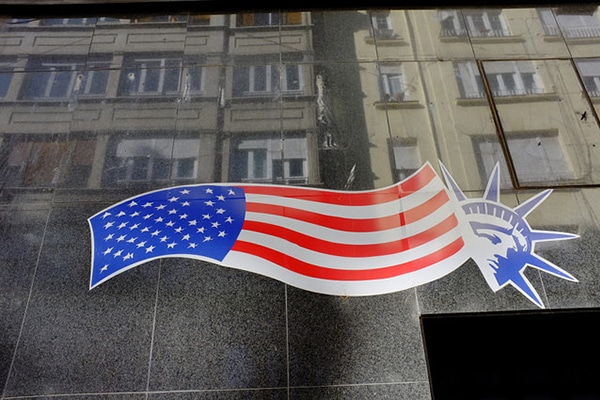
Just a few months into his presidency Donald Trump has pulled out of the Paris climate change agreement, consigned the Trans-Pacific Partnership –which took years to negotiate– to oblivion, withdrawn the US from UNESCO, allowed the future of the nuclear deal with Iran –and possible new sanctions– to be decided by Congress, warned of ending the NAFTA Treaty with Canada and Mexico –and cast doubt on the UN and NATO– and with his protectionism he has undermined a G20 that in a sense has thereby become a G19. Nor does he seem to have any plan for Syria or Iraq, beyond defeating Islamic State (Daesh or ISIS). The list of his policy reviews is starting to become alarming and he has not finished yet. He often ignores the counsel of his advisors and collaborators.
«America First» is distinct from the other policy that was always said to be pursued in Washington: «Second to none», which meant preventing any other power usurping the primacy of the US in a whole range of matters. Trump’s conception of «America First» can best be understood not so much as «America: top dog» as «America: to the exclusion of all else» and hang the consequences. True, in military terms the US is going to have an advantage for years, but this does not entail that it is going to be able to use and leverage such superiority.
In his efforts to «Make America Great Again», another slogan that is not as original as he may think, Trump may be diminishing a West that was in any case losing ground to emerging powers who do not share the same vision of what constitutes a desirable world order. This internal perception coincides with the external one: an Ipsos Mori opinion poll conducted last June ascribed greater positive global influence to China, which 49% of respondents viewed as strongly or somewhat positive, than to the US (40%). Claiming first place was Canada (81%), followed by Australia, Germany, France, the UK and the EU, all forming part of the West.
‘Under Mr Trump, America surrenders’, claimed a recent editorial in The New York Times. Indeed, the US is refraining from influencing global deliberations. Not only is he undermining the position of the US, Trump is also undermining the position of a West that is deprived of significance without a leader, precisely when other forces are emerging in the world. Brickbats are also raining down on him from his own Republican Party. In a much-lauded speech, one of its senior figures, Senator John McCain, warned that renouncing international leadership for the sake of a ‘half-baked, spurious nationalism’ devised by ‘people who would rather find scapegoats than solve problems’ is ‘unpatriotic’ and contrary to the country’s interests.
The internal politics of the US puts its global leadership in jeopardy. Although he connects with some of the traditions of American foreign policy, Trump is obsessed with undoing Obama’s overseas legacy, from Cuba to Iran, and on the domestic stage, overturning policies such as cheaper access to medical insurance and the treatment of ‘dreamers’, people who entered the US illegally as children and were brought up and work there. It remains to be seen what he will say about the ‘zero option’ treaty on European missiles signed by Ronald Reagan and Mikhail Gorbachev 30 years ago this December, which the latter now wants to be salvaged. Will Trump ramp up a new US nuclear build-up, as some news media claim? It is a prospect that looks set to fracture the West even further.
Small countries cannot afford such U-turns in their foreign policy, even if many succumb to it. The US is more accustomed to it –Obama, for instance, represented a degree of withdrawal compared to Bush’s activism– but whereas before the world had to adapt to Washington, or Washington shaped the world according to its interests, this no longer applies to the same degree. Moreover, it jettisons credibility as a country by not adhering to done deals, being perceived as more unpredictable and less trustworthy.
It is not that Trump is devoid of an international vision. He has spent years expounding it after his fashion, although previously he was not a candidate, still less the President of the most powerful nation on Earth. A central problem is that he fails to build anything to replace what he destroys.
Meanwhile, others are building. The contrast is clear with the Chinese President, Xi Jinping, who is creating structures parallel to Bretton Woods and others, ranging from the BRICS and their institutions to the Asian Infrastructure Investment Bank. At the 19th Congress of the Chinese Communist Party, where he cemented his dominance, Xi recently set out a vision of a resurgent China, willing to pull its weight and intervene, prioritising its own model of soft and hard power. Some advance while others fall back. Some wish to shape globalisation. Trump, as John Gray observes, wants ‘globalisation in one country’, his own. Meanwhile, Europe waits on the touchline, with all its capabilities and potential, but mulling everything over.


